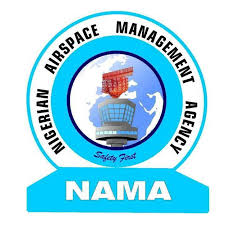Many airlines are avoiding Nigeria’s airspace because of difficulties encountered in communication with air traffic controllers, the Nigerian Airspace Management Agency (NAMA) confirmed on Sunday in Lagos.
Its Managing Director, Mr Farouk Umar, told newsmen at Ikeja that the agency was consequently eyeing more investments to rejuvenate the communication systems to match emerging air traffic trends.
He explained that there was the need to improve the weak communication system, which had been demand-saturated as the industry grew and more routes were opened.
He said huge investments were required of the Federal Government as more routes opened needing more stations to have signals to cover the entire country.
He added that the presidency recently budgeted N40 billion to address some of the issues at the airports, but the money had not been accessed.
Umar assured that as soon as money was made available, the agency would tackle critical safety challenges at the various airports.
“The entire communication network has been re-designed to ensure that every blind spot is covered because if one system fails today, air traffic controllers would not notice.
“We realised also that our radios are working well and well-positioned and we have addressed the challenges we met on ground, but then, we are still having issues.
“The issues have nothing to do with our radios, but with electricity supply which had been a national challenge that government had been working assiduously to fix.
“We have decided to deploy solar energy to some of our facilities to complement electricity supply from the national grid and from generators so that they can function well,’’ he said.
Umar noted that the International Civil Aviation Organisation frowned at even a second’s blackout at any airport and Nigeria could not afford to flout the regulation.
“For an average electronic system, the lifespan is about 10 years. Most of the communications electronics at the airports have been working for the past 15 years to 20 years. Their performance would be below standard, expectedly.
“We are replacing some of the equipment and we have done almost 80 per cent. The contractors are still working, however,’’ he assured.
Umar also told newsmen that Terminal Control Centres (TRACON) were still having challenges because since 2014, there had not been enough spare parts to fix the obsolete equipment there.
READ ALSO:
- Governor Okpebholo Holds Steady Advantage as Edo Election Tribunal Progresses
- FAAC shares N1.424trn December revenue to FG, states, LGs
- Tinubu Commends Nigerian Governors For Supporting Tax Reform
- Tax Reform Bills: Zacch Adedeji, The Man Of Steel
- Breaking The Cycle: How Nigeria’s Economy Shapes Democracy
“The Federal Government has approved the modernisation of the TRACON system. 15 per cent of the fund has been paid and we are hopeful that more installations will start soon.
“We are also hopeful that at the end of it all, the system will go back to optimal performance,’’ he said.
Umar lamented that NAMA had been charging airlines N11,000 as navigation fee per flight since 2008 when fares for local flights were N16,000, whereas airfares had risen to N150,000. (NAN)


